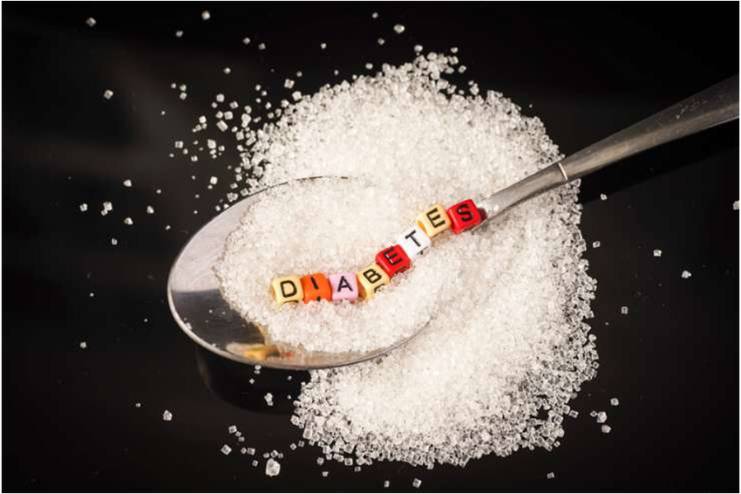Affiliate Disclaimer
Some links in this article are affiliate links. We may earn a small commission if you make a purchase through these links, at no extra cost to you. We only recommend products we find useful to our readersGlobally, diabetes is becoming more prevalent. It is a chronic, life-threatening condition that can cause heart attacks, strokes, and chronic issues with the nerves, eyes, and feet. With an estimated 537 million adults globally suffering from diabetes, the illness has achieved epidemic proportions and is having a significant negative influence on people’s lives, families, and healthcare systems. Diabetes is a chronic illness defined by increased blood sugar levels. Type 1 and Type 2 diabetes are the most common kinds, and each has different effects on lifestyle and health.
Combating the growth of diabetes requires an understanding of its true causes. False information about this illness has the potential to cause stigma, poor care, and lost opportunities for prevention.
Myth 1: Overeating Sugar Causes Diabetes

The idea that overeating sugar leads to diabetes is one of the most widespread myths regarding the disease. Many believe that this chronic disease is directly caused by overindulging in sweets or sugary drinks. The truth is much more complex.
Insulin production is either negligible or nonexistent in type 1 diabetes, an autoimmune disease caused by the immune system attacking the pancreatic beta cells that mistakenly produce insulin. This disorder has a vital genetic component and usually appears in infancy or early adulthood. It is not brought on by eating sugar.
On the other hand, insulin resistance—a state in which the body’s cells lose their insulin sensitivity—is linked to Type 2 diabetes. Although overeating sugar can induce weight gain, which is a significant risk factor for Type 2 diabetes, it is not the only culprit. According to studies, eating habits, physical inactivity, and heredity, all have a significant impact on the development of this kind of diabetes.
Myth 2: Only overweight individuals get diabetes

Contrary to popular belief, anyone of any weight can develop type 2 diabetes and gestational diabetes; risk factors for these conditions include obesity and overweight. This myth overlooks the myriad of factors that contribute to the formation of diabetes and oversimplifies its complicated nature.
It is accurate to say that being overweight raises your risk of developing diabetes. Nonetheless, a large percentage of overweight or obese persons never get diabetes. Furthermore, diabetes can strike those who are either normal weight or slightly overweight. Diabetes risk is influenced mainly by genetics; research shows that people, regardless of weight, who have a family history of the disease are more likely to get the disease. The National Diabetes Statistic Report, 2020, from the Centers for Disease Control and Prevention (CDC) states that 11% of Americans with type 2 diabetes do not meet the criteria for obesity or being overweight.
Moreover, lifestyle choices, like how active a person is, significantly impact their risk of diabetes. Regardless of body weight, sedentary activity can cause insulin resistance, which raises the risk of Type 2 diabetes. Acknowledging the complexity of diabetes aids in dismantling negative preconceptions and advances a more thorough comprehension of the disease’s prevention and management.
Myth 3: Diabetes affects the elderly

The notion that diabetes is exclusively a condition affecting the elderly is not only false but also harmful, as it may encourage younger generations to become careless about their health. Diabetes is striking younger people more often; concerning patterns are showing up in young adults, adolescents, and youngsters.
Studies show that Type 2 diabetes diagnoses in young people have increased significantly, with the leading causes being obesity, poor dietary choices, and sedentary lifestyles. The Centers for Disease Control and Prevention (CDC) report that throughout the previous 20 years, there has been a nearly 30% increase in the prevalence of diagnosed diabetes among teenagers. This pattern emphasizes how crucial early education and intervention are.
Preventing diabetes requires early instruction about good lifestyle choices, such as frequent physical activity and a balanced diet. Initiatives to raise knowledge of diabetes risk factors can provide the next generation of people with the tools they need to take charge of their health. Additionally, educating kids on the long-term effects of unhealthy eating patterns and inactivity can foster a lifetime of proactive health behavior.
Myth 4: Diabetes is Contagious

The widespread belief that diabetes is contagious and that your chances of getting the condition rise if you are around someone who has it is startling but true. This misconception about the molecular mechanisms underlying diabetes is the source of this belief.
Diabetes is a non-communicable disease (NCD), so you cannot contract it from another person through a virus, bacteria, or any other infectious agent. Diabetes, whether it be Type 1 or Type 2, is not spread from person to person but instead results from a confluence of lifestyle, environmental, and genetic variables.
Type 1 diabetes is an autoimmune condition in which the body’s immune system attacks the pancreatic cells that produce insulin. It is not brought on by social interaction but rather by a combination of environmental factors and genetic predisposition. Conversely, a poor diet, inactivity, and heredity frequently cause insulin resistance, which is mainly associated with type 2 diabetes.
World Health Organization (WHO) and other eminent health organizations classify diabetes as a chronic, non-communicable disease. It is important to debunk this myth since it contributes to unnecessary stigma against people with diabetes.
Myth 5: You’ll Get Diabetes If You Have a Family History of It

There is a common misconception that if diabetes runs in your family, you will always have the disease. Although having a family history of the disease does raise your genetic risk, diabetes is not always fatal.
Genetics undoubtedly influence Type 1 and Type 2 diabetes, but they do not predetermine your destiny. Having a close relative with Type 1 diabetes somewhat increases your risk, although the precise causes are still mostly unclear. Environmental variables are also believed to play a role. You may be more likely to develop type 2 diabetes if your sister, brother, mother, or father currently has the disease. However, other risk factors also exist. Healthy lifestyle practices, including proper nutrition, exercise, and weight control, are essential to predicting the likelihood of developing the illness. A balanced diet and regular exercise helped people at high risk for Type 2 diabetes lower their risk by 58%, according to research published in the New England Journal of Medicine.
Additionally important is early screening. Knowing your family history shouldn’t guarantee that you will always have diabetes; instead, it should encourage you to keep a closer eye on your health. You may significantly reduce your risk by getting regular checkups, eating a balanced diet, remaining physically active, and maintaining a healthy weight.
Myth 6: Stress doesn’t affect diabetes

The idea that stress does not affect diabetes is widespread, yet this couldn’t be further from reality. Contrary to popular belief, stress has a significant impact on blood sugar levels and general health, particularly for those who are managing diabetes. Stress is not just a mental or emotional hardship.
When your body enters “fight or flight” mode, it releases stress hormones like cortisol and adrenaline. These hormones prime your body for action by causing a spike in energy, frequently in glucose. This can lead to increased blood sugar levels in diabetics, making the disease more difficult to control. But mental health is just as important as physical stress in this regard. Stress-related to emotions can result in unhealthy coping strategies, such as overindulging in food or skipping exercise, which worsens blood glucose control.
Research has shown an association between elevated blood sugar levels and sleep disturbances caused by stress. Elevated stress levels are directly linked to poor outcomes in diabetes, such as decreased blood sugar management and an increased risk of complications, according to a study published in the American Diabetes Association and Its Complications.
How to Spot and Avoid Misinformation About Diabetes
In the current digital era, false information circulates quickly, and misconceptions and errors frequently damage people’s understanding of diabetes. It’s essential to distinguish fact from myth regarding diabetes management or prevention. Let’s look at a few practical tips to help spot reliable sources and avoid prevalent diabetes myths.
Practical Advice for Finding Reliable Diabetes Information:
Seek Out Scientific Proof:
Cross-Check Information:
Conclusion
Making educated decisions regarding your health requires having accurate information about the causes of diabetes. It’s evident that diabetes is influenced by a complex combination of genetics, lifestyle variables, and environmental triggers—rather than simplistic notions like sugar consumption or stress alone. Instead of letting false beliefs deceive them, knowing these facts enables people to take proactive measures for controlling or preventing diabetes. Concentrating on facts and trustworthy sources can raise awareness of diabetes, make healthier decisions, and ultimately improve your quality of life.
References
- https://www.mountsinai.org/health-library/special-topic/diabetes-myths-and-facts
- https://www.medicalnewstoday.com/articles/medical-myths-all-about-diabetes
- https://www.bhf.org.uk/informationsupport/heart-matters-magazine/nutrition/myths-about-diet-and-diabetes
- https://www.uchealth.com/en/media-room/articles/debunking-diabetes-myths
- https://www.merck.com/stories/debunking-type-2-diabetes-misconceptions/
- https://diabetes.org/about-diabetes/diabetes-myths
- https://diabetesatlas.org/
- https://www.cdc.gov/diabetes/php/data-research/?CDC_AAref_Val=https://www.cdc.gov/diabetes/pdfs/data/statistics/national-diabetes-statistics-report.pdf
- https://www.cdc.gov/media/releases/2022/p1229-future-diabetes-surge.html
- https://www.nejm.org/doi/pdf/10.1056/nejmoa010492
- https://diabetesjournals.org/spectrum/article/18/2/121/1827/Stress-and-Diabetes-A-Review-of-the-Links
- https://www.primeinternalmedassociates.com/2023/09/01/10-diabetes-myths-debunked/
- https://medlineplus.gov/ency/patientinstructions/000964.htm
- https://josefspharmacy.com/wp-content/cache/wp-rocket/www.josefspharmacy.com/2021/08/11/top-7-diabetes-myths/index-https.html_gzip
- https://www.healthline.com/health/type-2-diabetes/myths-and-misconceptions#2.-If-youre-overweight,-youll-automatically-get-type-2-diabetes.-
- https://www.canr.msu.edu/news/exploring_diabetes_part_two_dispelling_myths_and_misconceptions
- https://www.healthline.com/health/diabetes/diet-myths#carbs
In this Article






















